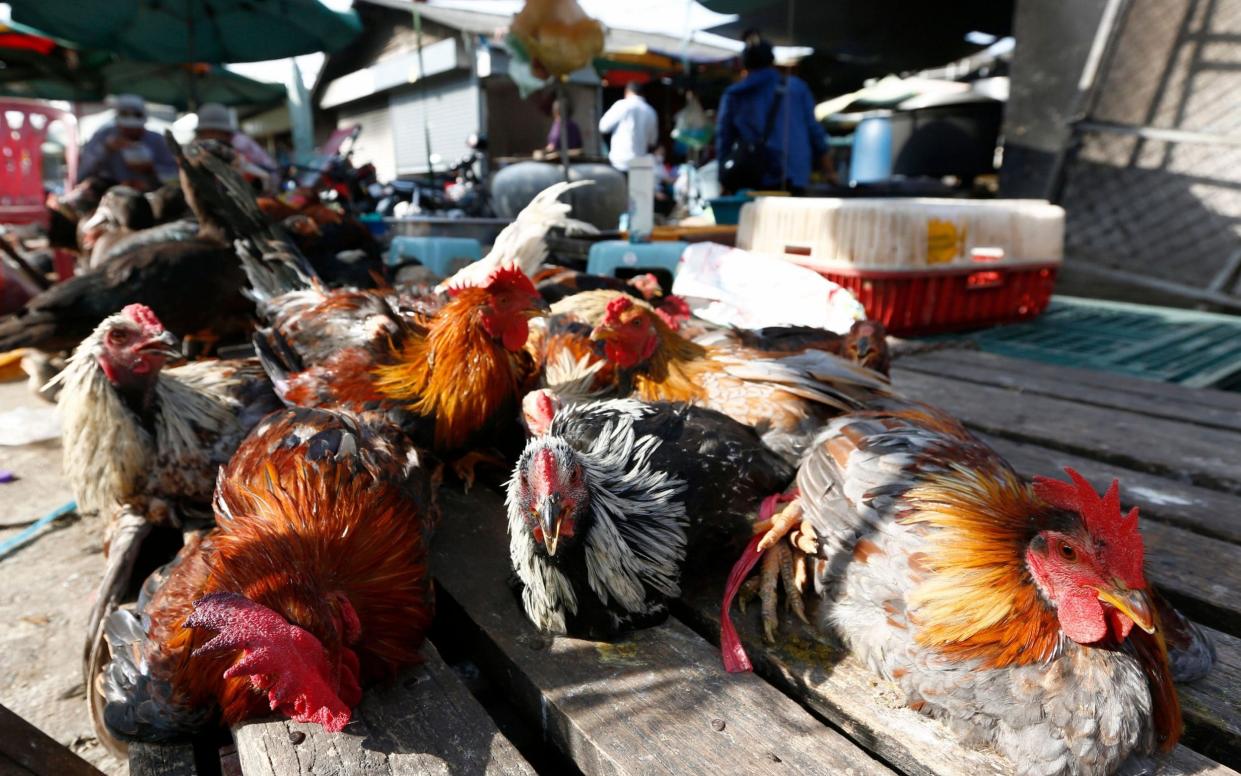Bird Flu: tourists should avoid farms and wet markets, WHO warns

International travellers visiting bird flu hot zones should avoid farms, wet markets and any areas where animals are slaughtered, the World Health Organization has warned.
In an incident that raised global alarm last week, an 11-year-old girl died after contracting the virus in Cambodia, while her infected father remains in isolation in hospital – 11 other close contacts tested negative on Friday.
According to a detailed situation report, the pair – the first infected in the country since 2014 – were infected by a strain of H5N1 that has been spreading in poultry across southeast Asia since 2014, known as clade 2.3.2.1c.
“This is an older clade of avian influenza that had been circulating around the region for a number of years,” Dr Erik Karlsson, director of the National Influenza Center of Cambodia and acting head of virology at the Institut Pasteur du Cambodge, which sequenced the virus, told Reuters.
“While it has caused human infections in the past, it has not been seen to cause human-to-human transmission,” he added.
An investigation into which bird or animal they caught the highly pathogenic H5N1 virus from remains ongoing.
Human cases ‘expected’
Experts are relieved that the Cambodian cases are not linked to either a new clade or the 2.3.4.4b strain, which has killed millions of birds around the world and has recently jumped to mammals, including foxes in the UK, mink in Spain and sea lions in Peru.
“Obviously, anytime avian influenza causes a spillover, it's concerning,” Dr Karlsson added in an interview with the Telegraph. “Anytime a pathogen spills over into a new host, it has the chance to change and become more adapted to that host.
“[In Cambodia, officials] are closely monitoring the close contacts they’ve identified, and will continue to do so… but hopefully this will be an isolated incident,” he said.
In an update on Sunday, the WHO also said that while the risk to the general public is low overall, “further human cases can be expected” because the virus is still spreading in poultry.
The agency advised against restrictions on trade or travel but urged travellers to areas with outbreaks to “avoid farms, contact with animals in live animal markets, entering areas where animals may be slaughtered, or contact with any surfaces that appear to be contaminated with animal faeces”.
The situation report also called for stringent global surveillance, strengthened biosecurity on farms and for people involved in culling birds or disposing of their bodies to wear adequate protection.
The agency also suggested people in close contact with poultry are vaccinated against seasonal human flu, to reduce the risk that H5N1 could recombine with a human avian virus.
Protect yourself and your family by learning more about Global Health Security

